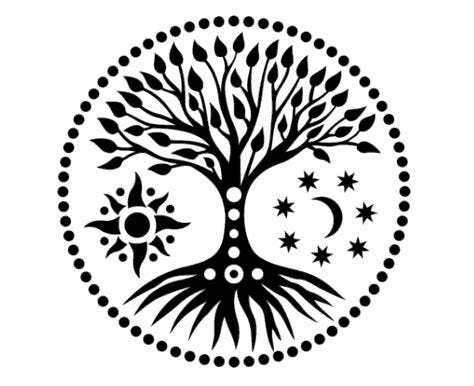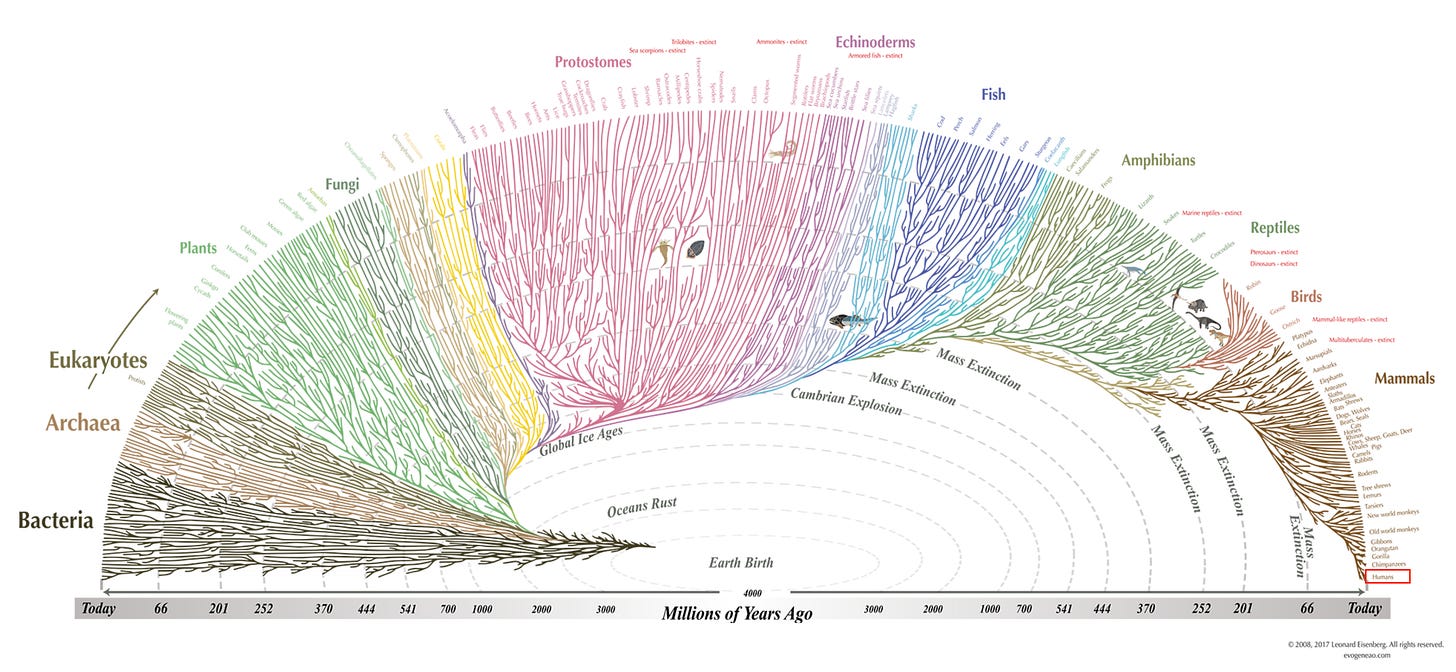The Secret the Earth Whispers When We Leave
✍️ Facing climate responsibility by seeing our absence through Earth's eyes.
The Inconvenient Mirror
If the bees die, we die.
If the sharks die, we die.
If the trees die, we die.But if we die?
They all thrive.
This isn’t poetry. It’s biology.
It’s the quiet confession of an Earth grown weary of its apex predator.
Humanity, for all its brilliance, may be the only species clever enough to destroy the very foundation of its own existence. We have become the crisis we once feared—an invasive species armed with technology, obsessed with expansion, disconnected from consequence.
A dubious achievement: to be the one species that threatens every other.
We were meant to be caretakers. We became consumers.
The Sacred Task We Forgot
What was the role of humanity?
God*—if you like that word—feeds the children of one species to another, without judgment. The lion eats the lamb, the falcon swoops on the mouse, the oceans churn with life and death in equal measure. Nature is beauty, yes—but also brutality. And it has no preference.
But humans?
Our gift was not strength or speed. It was empathy.
We were meant to bring humanity* to the world. The ability to feel the other, to extend care beyond kin, to recognize suffering where nature once showed only neutrality.
That was our sacred task.
And now the question must be asked—how are we doing?
When the Guest Becomes the Plague
The signs are everywhere.
We are too many *.
We take up too much space.
We devour too many resources.
We grow, multiply, metastasize, killing the host that sustains us.
It’s not wrong to eat an animal.
It is wrong to kill them all.
It’s not wrong to cut a tree.
It is wrong to raze a forest to the ground and call it progress.
What does this tell us?
That we have lost all sense of proportion.
We have become addicted to "more."
More growth. More money. More power. More speed.
And when our growth creates problems, what do we do?
We keep growing, just faster.
We keep trying to fix the damage with the very tools that caused it.
But destruction cannot heal destruction—only Love can.
The Shadow that Devours the World
Where does this darkness come from?
Why do we destroy what we claim to love?
Because we do not know who we are.
Because we are afraid.
Afraid we are not enough.
Afraid we won’t be safe.
Afraid we’ll be left behind.
This is the root of our shadow—the place from which our violence springs. We try to fill an inner void by devouring the outer world.
But when we know ourselves—truly, intimately—something shifts.
We realize we are not separate from the world.
We are the tree.
We are the bee.
We are the shark.
We are the God dreaming itself as human for a little while.
And when we know this, we can no longer harm the world without harming ourselves.
We can no longer kill without grieving.
We can no longer take without giving back.
Two Creeds, Two Futures
The creed of modern capitalism is simple:
Capitalism: Take more. Give less.
This is the path we walk today. It is the creed of quarterly profits, convenience, and comfort. And it will destroy the world in decades.
But there is another way.
An older way.
The creed of the shamanic soul:
Shamanism: Give more. Take less.
This is the path of reverence, reciprocity, and restraint. It is the way our ancestors walked for hundreds of thousands of years. It is not a utopia—it has its struggles. But it does not end in collapse.
We see the result of the god we worship.
We have built a society on extraction, not regeneration.
On possession, not participation.
And we wonder why everything is dying.
The solution is not to hoard more so that collapse doesn’t touch you.
The solution is to give more—to take less.
To stop protecting privilege and start restoring balance.
To remember we were never here to dominate.
We were here to relate. To feel. To give back.
A Humble Return
Maybe the world doesn’t need us to lead.
Maybe it just needs us to remember we belong.
If we could shrink our shadow and expand our soul,
If we could take less and give more,
If we could step down from the throne and return to the circle,
Then maybe we wouldn't just survive.
Maybe we’d finally deserve to.
On the Word "God"
When I say God, feel free to use whatever word opens your heart or expands your mind.
Call it Nature, Source, Spirit, Consciousness, the Great Mystery, the All That Is, or the intelligent fabric of the universe.
These are just fingers pointing to the same moon—what matters is not the name, but the knowing.
On the Word “Humanity”
In the sense of being humane, humanity refers not to our species, but to our capacity for empathy, compassion, kindness, and the recognition of shared suffering.
It is the quality within us that pauses before harm, that reaches toward the vulnerable, that feels the pain of the other as if it were our own. It is the ability to care—not just for our kind, but for all life.
To be truly human, then, is not simply to belong to the Homo genus,
but to embody humanity—
to feel, to care, to protect.
Without it, we are merely clever animals with opposable thumbs and nuclear weapons.
Too many, don’t you see it?
When my grand-dad was born we were 1.6 billions. When my dad was born we were 2.1 billions. When I was born we were 3 billions, we are almost 9 by now, may be 10 before I die…
We have quadrupled in 3 generations.




This one lands like a silent bell in the heart of the forest.
Gabriel's words aren't just poetic—they're a eulogy for the illusion of human superiority, and a reminder that Earth isn’t our kingdom, it’s our kin. We were handed the gift of empathy and managed to weaponize it into marketing psychology and clickbait algorithms.
Virgin Monk Boy would like to offer a gentle heretical amendment:
Humanity didn’t fall from grace—we tripped over a shopping cart in a Walmart parking lot and declared it enlightenment.
And yet… we can still return. Not as masters, but as guests who’ve finally learned to take off their muddy boots at the door.
Until then, the bees and trees pray for our absence.
But maybe—just maybe—if we shrink our egos faster than we grow our economies, the world might one day welcome us home instead of sighing in relief when we leave.
Gabriel,
A masterpiece. When I restacked I meant to leave a comment.
Love this.